Archive
13 May 2020
Social Distancing Dashboard provides roadmap for city dwellers

The Social Distancing Dashboard creates city maps that show on a street and neighbourhood level if social distance rules can be respected when moving in public space.
07 May 2020
We\Visit: combatting loneliness with video calling

For patients hospitalised with COVID-19, the battle is not just a physical fight against the virus, it’s a psychological struggle against isolation. Witnessing the impact of isolation on coronavirus patients, the Renier de Graaf Hospital in Delft reached out to scientists at Delft University of Technology to ask for help in developing an easy-to-use and secure communications platform.
06 May 2020
Dutch public in favour of limited relaxation of coronavirus measures

Dutch people believe that any relaxation of measures to control the coronavirus should be limited, in order to prevent the healthcare system becoming overstretched. They also think that the measures should not be allowed to sow division: there is no support for lifting restrictions for specific groups.
06 May 2020
TU Delft students share ventilator design for international use
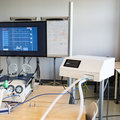
In a very short period of time, students involved in OperationAIR have successfully developed an emergency ventilator for coronavirus patients. Following the necessary test procedures, the design of the AIRone – including all related documentation – has now been released online so that other countries and initiatives can also benefit from it.
30 April 2020
Investment of 14 million for better use of micro-organisms
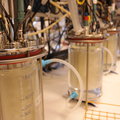
28 April 2020
Mechanical ventilator to Guatemala
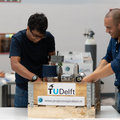
The researchers of Project Inspiration have made all of the designs for their mechanical ventilator available worldwide. In this way, the team hope to reduce the shortage of ventilators in the Netherlands and abroad. In addition, a test model has been prepared, and it will soon be sent to Guatemala.
28 April 2020
TU Delft to launch online survey of preferred exit scenarios on 29 April

TU Delft researchers will be asking people in the Netherlands on how they would prefer coronavirus measures to be relaxed. From 29 April, anyone will be able to make their preferences known at www.tudelft.nl/covidexit.
27 April 2020
TU Delft researchers gain new insights into Vermeer’s Girl with a Pearl Earring

Scientific research into the world-famous painting by Johannes Vermeer, known as the 'Girl with a Pearl Earring', has yielded new insights. TU Delft researchers played an important role in making discoveries about the brushwork, the use of pigments and how Vermeer built up his painting with various layers of paint.
24 April 2020
Royal Honor 2020 Prof. Richard Goossens

Richard Goossens, Professor of Physical Ergonomics in the Faculty of Industrial Design Engineering (IDE), has been made a Knight of the Order of the Netherlands Lion in Vlaardingen. Because of the coronavirus, the official presentation will take place later in the year.
24 April 2020
TU Delft and NS study the impact of the coronavirus crisis on travel behaviour
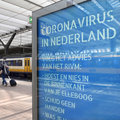
22 April 2020
TU Delft supports COVID-19 ResilientSociety platform
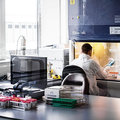
20 April 2020
Microorganisms work together to survive high temperatures
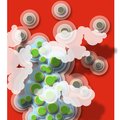
Delft researchers demonstrate that microorganisms can work together and help each other and their future generations survive and replicate at high temperatures.
20 April 2020
Minister Ingrid van Engelshoven and European Commissioner Mariya Gabriel launch Europe's first quantum computer in the cloud: Quantum Inspire

Today, Minister Ingrid van Engelshoven and European Commissioner Mariya Gabriel launched Europe’s first public quantum computing platform: 'Quantum Inspire'.
17 April 2020
European Commission greenlights large international water project

The European Commission has signed the grant agreement for WATER MINING, a 17 million euro project aimed at demonstrating innovative water resource solutions. As part of the project, demonstrations in Cyprus, Spain, Portugal, Italy and The Netherlands will be built to show novel efficient ways to reclaim nutrients, minerals, energy and water from industrial and urban wastewater and seawater. The public-private consortium consists of 38 public and private partners and 4 linked third parties in 12 countries. It will be led by Delft University of Technology (TU Delft).
16 April 2020
Lucky find in water research yields better detection method for coronavirus
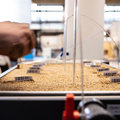
Water research and the coronavirus are not a logical combination. Nevertheless, researchers from Delft and Norway have managed to apply a finding from their water research in the detection of the corona virus. A coincidence – but certainly not less useful.
15 April 2020
Scalable quantum bits operate under practical conditions

QuTech, a collaboration between TU Delft and TNO, has managed to control qubits in silicon at temperatures over 50 times higher than previously. The increase to practical temperatures represents a crucial leap towards a functional quantum computer. Qubits are the building blocks of a future quantum computer and operating at a higher temperature opens up the possibility of integrating both qubits and their controlling electronics onto one standard chip. The researchers published their findings in Nature today.
14 April 2020
Mechanical ventilator from the 1960s inspires Delft engineers
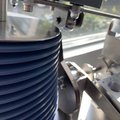
Today, a team of Delft researchers and students from the BioMechanical Engineering department is launching a new type of ventilator that is purely mechanical and which you could easily construct and repair yourself. The team borrowed a 1960s ventilator from Rijksmuseum Boerhaave and used it as inspiration. As it works mechanically, no electronics are required. This is particularly advantageous since its production is not dependent on the – now uncertain – supply of parts from China.
14 April 2020
Scientists design ventilator made of standard parts
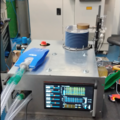
Amir Zadpoor and a team of scientists from the BioMechanical Engineering department are testing the first prototypes of a ventilator that consists entirely of standard parts. These parts are available locally almost all over the world and can be produced by hundreds of manufacturers. This means that, in many cases, the ventilator can be assembled locally. It is hoped that the design will be able to respond to the demand for ventilators and offer a solution to the logistical problems resulting from a shortage of specific components.
09 April 2020
Reappointment of Tim van der Hagen as Rector Magnificus/President of the Executive Board

The Supervisory Board of TU Delft has reappointed Professor Tim van der Hagen as TU Delft Rector Magnificus/President of the Executive Board. The reappointment is for a period of four years and becomes effective on 1 May.
08 April 2020
A bit of math to constrain epidemics
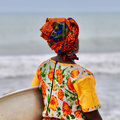
06 April 2020
TU Delft joins International Universities Climate Alliance
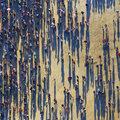
An International Universities Climate Alliance (‘Climate Alliance’) has been established this week. Over 40 universities from around the world committed to collaborating for climate insight and action.
03 April 2020
OperationAIR student team creates working prototype for emergency ventilator
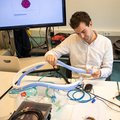
02 April 2020
FIOD and TU Delft join forces in investigating digital and financial crime

TU Delft researchers and students are helping the FIOD (Fiscal Information and Investigation Service) in its efforts to combat digital and financial crime. After a successful pilot, a longer-term research programme is now set to start.
02 April 2020
The strength of collagen
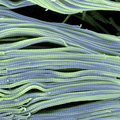
Collagen is the glue that holds our bodies together. It can be found in our skin, bones, muscles, cartilage, ligaments, hair, nails - in short, in almost every tissue in our body. In some places, for example in the skin, collagen proteins form networks that are very elastic. But why these networks are so elastic has so far been unclear. Researchers from Delft University of Technology, AMOLF and Wageningen University & Research have now discovered that the number of 'intersections' plays an important role. Between three and four connections per intersection is ideal. In fact, more connections makes the collagen networks less elastic. The new insights can be used, among other things, to repair damaged or aged tissue, such as cartilage or skin, and to grow new skin tissue for burn victims.
31 March 2020
TU Delft corona related research
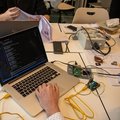
We've brought together some of the research being done at TU Delft bearing a relation to the coronacrisis.
31 March 2020
ERC Advanced grants for TU Delft researchers
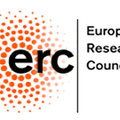
Three TU Delft researchers have been awarded an ERC Advanced Grant. Cees Dekker, Jerry Westerweel and Lieven Vandersypen will receive this European grant, which is awarded to five-year projects conducted by internationally established research leaders.
27 March 2020
3D printed component makes snorkel mask useful for medics
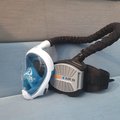
IDE researchers, in collaboration with physicians and industry, designed a unique 3D printed connector to connect an ordinary snorkel mask to a filter system. This makes the snorkel mask usable as a protective mask for medical personnel. The design has been made available worldwide on Thingyverse.
27 March 2020
Looking into the earth with sound
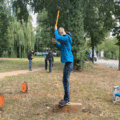
A student is hitting a metal plate with a hammer while another is looking at a computer screen in a nearby tent. What (on earth) is happening here? ‘We’re studying the earth’s interior,’ PhD and geophysicist Myrna Staring says.
20 March 2020
TU Delft works on reusable surgical masks with Reinier de Graaf and VSM
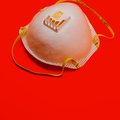
In the fight against the 'Corona shortage’ of face masks, John van den Dobbelsteen and Tim Horeman, researchers at the Department of BioMechanical Engineering department, and with lab manager Rob Luttjeboer, developed a successful way to test reused sterilised surgical masks and surgical masks made of new materials.
19 March 2020
TU Delft Master’s students start initiative for developing ventilators
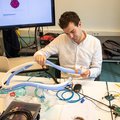
This week, under the leadership of Director of Studies for Technical Medicine Professor Jaap Harlaar, a group of Master’s students in Technical Medicine launched the OperationAIR initiative with the objective of developing a simple and relatively inexpensive ventilator as quickly as possible.
19 March 2020
Time to spare? Take an online course!

The coronavirus crisis means that many people have little or no work right now, or extra time on their hands because of cancelled appointments. For some of these people, this might be the perfect time to take an online course.
16 March 2020
Millions of euros to improve to improve the Rhine-Alpine freight corridor

Container ships that aren’t fully loaded, congested locks resulting in long waits for vessels, suboptimal navigation of ships on rivers and fully loaded ships that cannot cope with low water levels. These are common problems on inland waterways. The Horizon 2020 programme ‘Novel inland waterway transport concepts for moving freight effectively’ (NOVIMOVE) is going to use a European grant of almost 9 million euros to conduct research on how to improve the logistics of this transport system.
10 March 2020
Researchers organically engineer solar cells using enzymes in papaya fruit
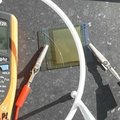
Titanium dioxide (titania) thin films are commonly used in various types of solar cells. The fabrication methods that are currently used to create such titania films require high temperatures, as well as expensive, high-end technologies. Researchers at Delft University of Technology (TU Delft) have now developed a fully organic method to engineer porous titania thin films at relatively low temperatures.
10 March 2020
The Digital Human Capital Agenda of The Hague for ‘digital talent’
The City of The Hague and over twenty businesses and educational institutions will jointly educate, train and re-train thousands of people as ‘digital talents’
04 March 2020
Zigzag DNA
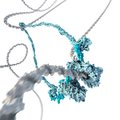
DNA in a cell can normally be compared to spaghetti on one’s plate: a large tangle of strands. To be able to divide DNA neatly between the two daughter cells during cell division, the cell organises this tangle into tightly packed chromosomes. A protein complex called condensin has been known to play a key role in this process, but biologists had no idea exactly how this worked. Until February 2018, when scientists from the Kavli Institute at Delft University of Technology, together with colleagues from EMBL Heidelberg, showed in real time how a condensin protein extrudes a loop in the DNA. Now, follow-up research by the same research groups shows that simple bundling up such loops is by no means the only way condensin packs up DNA. The researchers discovered an entirely new loop structure, which they call the 'Z loop'. They publish this new phenomenon in Nature on 4 March, where they show, for the first time, how condensins mutually interact to fold DNA into a zigzag structure.
04 March 2020
TU Delft proud of high positions in the global QS Subject Ranking
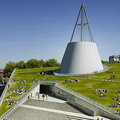
The World University Rankings by Subjects 2020, published today, places TU Delft in 15th place in the broad category of Engineering & Technology.
03 March 2020
Royal HaskoningDHV opts for TU Delft Campus
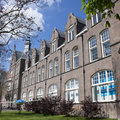
Royal HaskoningDHV opens a branch for 800 employees in Delft, an international hub in the field of technology, innovation and knowledge development.
02 March 2020
The magnet that didn’t exist
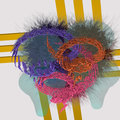
28 February 2020
The voice of the patient
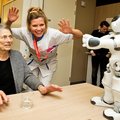
The use of technology is unavoidable to keep healthcare affordable and accessible, but its implementation must go hand in hand with respect for patient values, says trauma surgeon Maarten van der Elst. He has been appointed to TU Delft’s Reinier de Graaf chair for the coming five years and is holding his inaugural address on 4 March.
26 February 2020
TU Delft climate arboretum
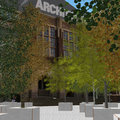
Wednesday 18 March, National Tree Day (Nationale Boomfeestdag), will see the opening of the first climate arboretum at TU Delft.